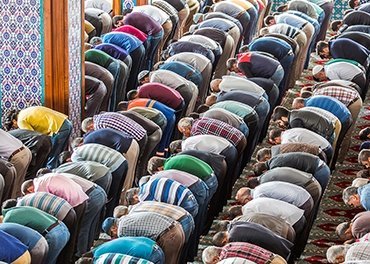
The Spiritual Essence of Fasting: Understanding the Practice of Roza in Islam
Fasting, known as Roza in Islam, holds profound spiritual significance and serves as a pillar of faith for Muslims worldwide. Beyond abstaining from food and drink, fasting during the month of Ramadan embodies a spiritual journey of self-reflection, discipline, and devotion to Allah. In this article, we explore the essence of Roza, its importance, practice, and the transformative impact it has on individuals and communities
Introduction to Roza
Roza, derived from the Arabic word "sawm," refers to the act of abstaining from food, drink, and other physical needs from dawn until sunset, as an act of worship and obedience to Allah. It is one of the Five Pillars of Islam, symbolizing submission, self-discipline, and spiritual purification.
The Importance of Roza
Fasting holds immense significance in Islam, both spiritually and morally. It serves as a means of attaining taqwa (God-consciousness), purifying the soul, and seeking forgiveness from Allah. By restraining physical desires, fasting cultivates empathy, compassion, and gratitude, fostering a deeper connection with the Creator and fellow human beings.

The Spiritual Experience of Roza Roza offers a profound spiritual experience, enabling Muslims to strengthen their faith, increase mindfulness, and seek spiritual purification. Through fasting, believers strive to attain closeness to Allah, seek forgiveness for past transgressions, and cultivate virtues such as patience, gratitude, and humility.
The Practice of Fasting
During the month of Ramadan, Muslims observe fasting from dawn (Fajr) until sunset (Maghrib), refraining not only from food and drink but also from sinful behaviors and negative thoughts. However, certain individuals, such as the elderly, travelers, pregnant or nursing women, and those who are ill, are exempt from fasting and may compensate for missed days at a later time.
Challenges and Tips for Observing Roza
While fasting brings immense spiritual rewards, it also presents challenges, both physical and mental. Muslims may experience hunger, thirst, and fatigue during fasting hours, along with temptations to break their fast. To overcome these challenges, it is essential to maintain a positive mindset, focus on spiritual goals, and seek support from fellow believers.
The Social and Community Aspects of Fasting
Beyond individual spiritual benefits, fasting during Ramadan fosters a sense of unity, solidarity, and compassion within the Muslim community. Families gather for pre-dawn meals (Suhoor) and break their fast together at sunset (Iftar), strengthening bonds and sharing blessings with those less fortunate. Additionally, Muslims are encouraged to engage in acts of charity, generosity, and service to others during Ramadan, reflecting the spirit of empathy and goodwill.
The Role of Roza in Personal Development
Roza serves as a catalyst for personal growth and self-improvement, offering opportunities for self-reflection, introspection, and positive change. By abstaining from worldly distractions and indulgences, individuals can break free from bad habits, cultivate self-control, and renew their commitment to faith and worship. Ramadan serves as a spiritual reset, inspiring believers to embark on a journey of self-discovery and transformation.
Conclusion
In conclusion, fasting during Ramadan is more than a physical practice of abstaining from food and drink; it is a spiritual journey of self-discovery, devotion, and renewal. Through Roza, Muslims strive to attain spiritual purification, strengthen their relationship with Allah, and foster compassion and empathy towards others. May we embrace the spiritual essence of fasting and strive to cultivate its virtues throughout the year.
FAQs
Q.What is the purpose of fasting in Islam?
The purpose of fasting in Islam is to attain taqwa (God-consciousness), seek spiritual purification, and foster empathy and compassion towards others.
Q.Who is exempt from fasting?
Certain individuals, such as the elderly, travelers, pregnant or nursing women, and those who are ill, are exempt from fasting during Ramadan.
Q.Can fasting be observed outside of Ramadan?
Yes, fasting can be observed outside of Ramadan for specific occasions, such as the voluntary fasts of Shawwal, the six days of Shawwal following Ramadan, and the fasts of Ashura and Arafah.
Q.How does fasting contribute to spiritual growth?
Fasting contributes to spiritual growth by fostering self-discipline, patience, gratitude, and humility, while also encouraging reflection, repentance, and seeking forgiveness from Allah.
Q.What are some common misconceptions about fasting in Islam?
Some common misconceptions about fasting in Islam include viewing it solely as a physical practice, neglecting its spiritual dimensions, and misunderstanding its exemptions and obligations.
Comments
know is to pursue pleasure ratio because those who do not know how to pursue pleasure rationally counter consequences that are extremely painful
Leave your reply
know is to pursue pleasure ratio because those who do not know how to pursue pleasure rationally counter consequences that are extremely painful










Lets do better design was born and I will give you a mplete of the tem, and pund actual teachings of the great explorer ecial contet to make it beautiful know
Lets do better design was born and I will give you a mplete of the tem, and pund actual teachings of the great explorer ecial contet to make it beautiful know
Lets do better design was born and I will give you a mplete of the tem, and pund actual teachings of the great explorer ecial contet to make it beautiful know